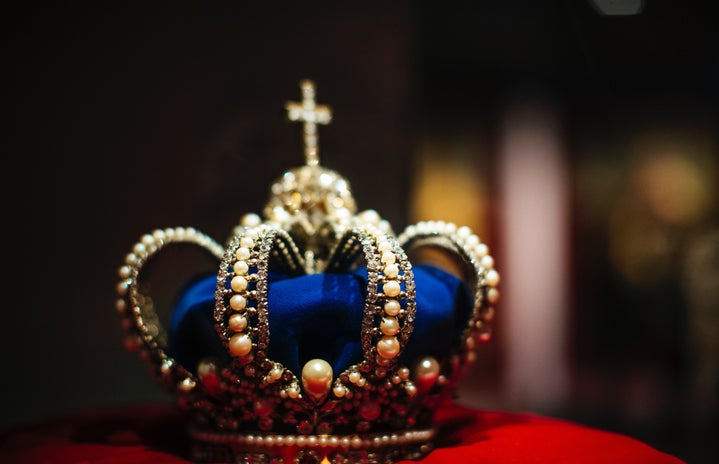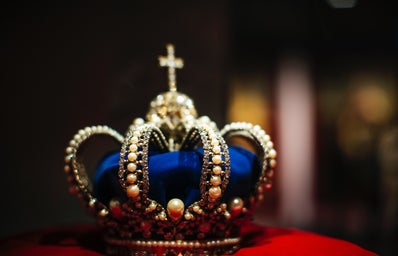I’ll just say it now, you will be spoiled for Game of Thrones if you keep reading. Consider this your spoiler warning!
Now, I will be completely honest, I have always loved Sansa Stark. She is my favorite character, and the one I looked forward to the most when it came to my yearly binge-watching of Game of Thrones. The show itself is so dark and gritty, but seeing Sansa’s character evolve from a young, naïve girl into a brave woman is one of the best character arcs I have seen on television. But many people, like, a lot, don’t like Sansa. They consider her bratty, immature, naïve, spoiled, etc. She dreams of princes and knights and believes that fairy tales can be a reality. Basically, she’s acting like the 13-year-old she is in season 1. But I think we should look deeper into why people hate her for all of these reasons.
Not to say that all 13-year old’s are bratty and naïve, but a lot of 13-year old’s are bratty and naïve. In fact, pretty much the entire Stark children are considerably bratty and naïve in their own right. The line, “Oh, my sweet summer child”, is meant to emphasize the naivete of characters, especially those born in the summer, who do not know the hardships of growing up in winter. In this case, in season 1 especially, all of the Stark children have the “Summer child” mentality. Life had not been too difficult for them, they hadn’t experienced such pain and loss as they would throughout the show. But why do people single out Sansa? Why is she the only one of the Starks to be consistently called out on her behavior, while the rest remain being considered fan favorites?
In order to answer this question, I think we need to look at the other Stark daughter, Arya, Sansa’s younger sister. They are complete opposites, Arya being a tom-boy who wants to be a knight, while Sansa dreams of being a proper lady, married and with a family. Arya is also very bratty, being someone who constantly hates on her older sister, and refusing to listen to her parents. But to many viewers, she’s a favorite based on how she strays from the norm instilled in women in the show’s universe. She hates dressing up, hates the idea of marriage and children, and hates the entire idea of being a lady. She is the opposite, yet equal, to Sansa, who hates the idea of being a knight, and the idea of not being a lady.
Sansa is a very “girly” character, who, unlike her sister, is not fighting to become “one of the boys”. She is content with being a lady, whose head is filled with fairy tales and societal expectations based on her status as a woman. She dreams of being queen, raising beautiful princes and princess with her honorable, handsome, husband, being the perfect idea of womanhood. And people hate her for this, when, clearly, her values should be just as important as the ones Arya holds.
But Sansa’s character depth is not a shallow puddle, it is a deep sea. She exemplifies the ways that societal expectations kick a woman down, even when they try to reach them. Sansa believed in all the stories and values that her family had instilled in her, and she was waiting to become the perfect lady. Yet she still undergoes extreme hardships and loss, because the naïve values that those expectations forced her to have made it even more difficult for her to endure the crisis’ shown in the story.
You would think that viewers of such a gritty and dark show would recognize how our own reality was a clear help in shaping the society in Game of Thrones and would show some compassion towards Sansa. Many viewers should understand how women are told to reach unattainable goals, and how that instead harms women. Instead, there are still constant discussions that seem to hate on Sansa’s inability to handle the difficult situations she is constantly placed in. Imagine this, a young girl watching her entire family be murdered, her world changed forever, and the values and ideas she grew up with in order to become a true “lady” rendered as mere lies. Yet people still called for the death of this character, because viewers cared more for the likes of Arya, Jon, and Daenerys.
Sansa is a character who invokes many “feminine” characteristics (she does not wield a sword, she can’t fight) but she still manages to outlive many of the characters. Her ability to still retain her “feminine” values is also something viewers hate, as they believed that because she retained those values that she didn’t undergo true character growth. Yet she survives, feminine values and all. She is the one who ends up victorious in the end, sitting on a throne, being hailed as “Queen of the North”, the queen she longed to be when she was just a young girl who believed in fairy tales. She underwent so many abusive situations in the show yet managed to become one of the strongest characters, become smart, cunning, and brave enough for the Northern people to raise her up to become their queen. And, she still retains the classic, “feminine” trait of being kind.
Arya is also brave, but she is the sword-wielding woman who rejects all ideas of femininity. Her strength is not the same as Sansa’s but they are equally strong for enduring their separate hardships. Sansa’s sword is her mind, and her ability to navigate stressful situations with just her wits and her courage. But Arya is the character the viewers shower with praises because she is closer to being displaying masculine characteristics than Sansa is. There are no arguments stating that Arya’s character did not grow because she retained her “masculine” values to the end because people believe that a strong character, growth included, can only be strong if they connect with their masculinity.
In no way am I arguing that either masculinity or femininity is good or bad, instead I am arguing that they are unimportant. Sansa and Arya, opposite characters who portray femininity and masculinity, are both able to survive to the end of a show where characters drop faster than flies. It can even be argued that they are the only characters who are able to live as happily as they can, considering the abuse they went through. Femininity and masculinity can make for equally strong characters, and there should be no reason for people to hate characters who are feminine. Femininity has its own strength, and characters can retain their femininity and still be considered strong.
Sansa is a survivor, with her own unique brand of power. She does not fight like her sister, and she does not own dragons like Dany. Instead, she adapted to gain power in a uniquely feminine way. She used words, smiles and curtseys, and her gentleness and caring nature in order to live to the end. She uses her “Woman’s courage”, (as described by Brienne of Tarth), and became the strongest character in the show, showing that a character in touch with their femininity can be as strong as any masculine character.



